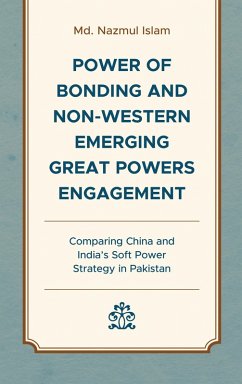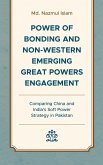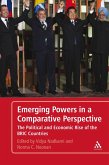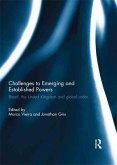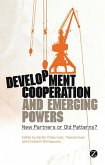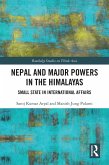In international politics, states often strive to maintain their position through either cooperation or force. Soft power theory has emerged as a non-violent approach for states to achieve national interest by utilizing intangible resources. China and India have both successfully employed soft power strategies to expand their influence, , and Pakistan is a relevant case study for examining the soft power of China and India, as it neighbors of both countries. The withdrawal of the United States from Afghanistan has raised questions about how India and China will engage and cooperate in dealing with Pakistan, as well as how they will fill the regional gap left by the US. Nazmul Islam considers Joseph S. Nye's Soft Power theory and develops a new idea of "Power of Bonding" based on non-Western perspectives to examine India and China's soft power strategy on Pakistan.. Additionally, it evaluates their areas of influence and soft power strategy in three thematic areas: political and diplomatic engagement, cultural attributions and attraction for power bonding, and economic partnerships. To accomplish these objectives, the study relies on various research methods, including content analysis of articles published in Pakistan's Dawn newspaper, and one-on-one interviews with participants from Pakistan, India, and China.
Bitte wählen Sie Ihr Anliegen aus.
Rechnungen
Retourenschein anfordern
Bestellstatus
Storno

